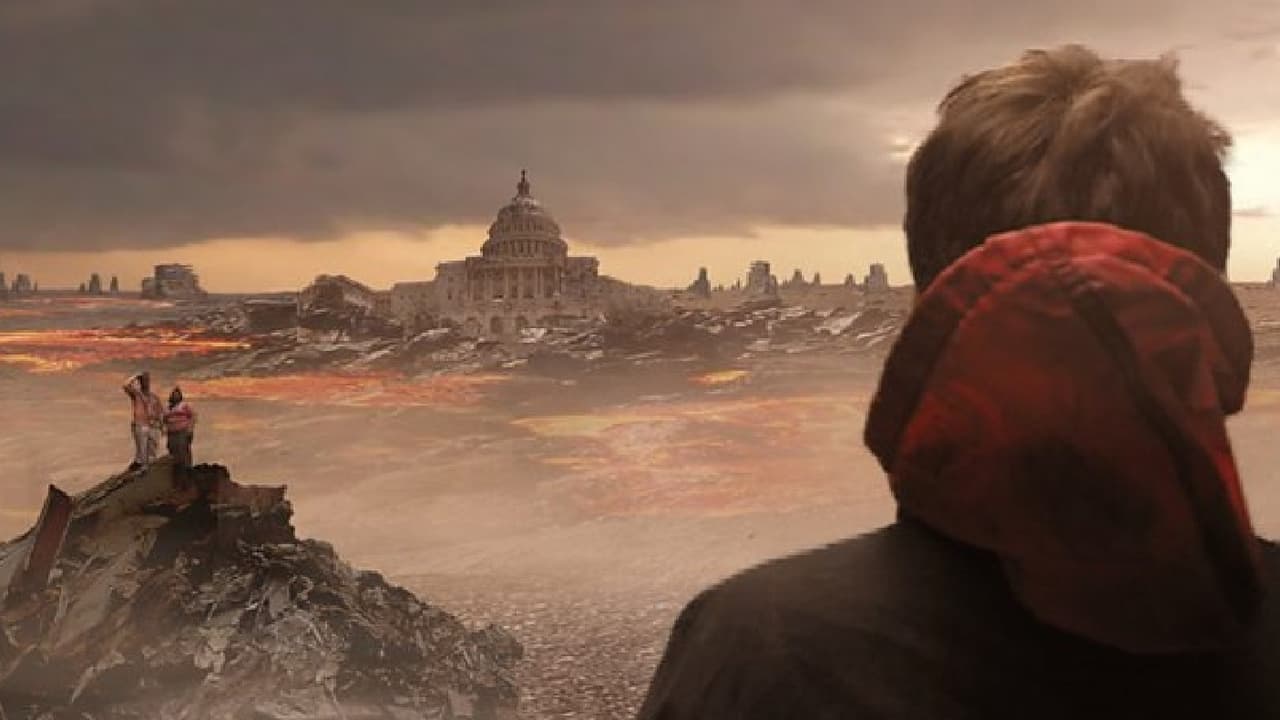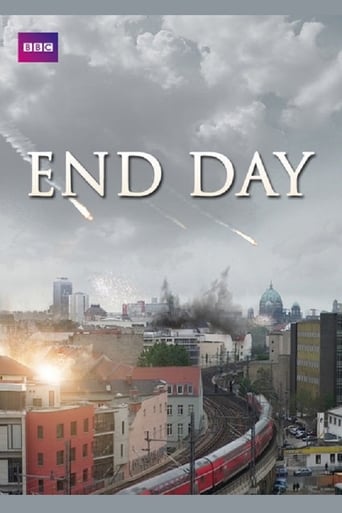SparkMore
n my opinion it was a great movie with some interesting elements, even though having some plot holes and the ending probably was just too messy and crammed together, but still fun to watch and not your casual movie that is similar to all other ones.
Anoushka Slater
While it doesn't offer any answers, it both thrills and makes you think.
Philippa
All of these films share one commonality, that being a kind of emotional center that humanizes a cast of monsters.
Cassandra
Story: It's very simple but honestly that is fine.
Robert Walker
I gave this a 1 point for awful for the science. I'd give it an 8 perhaps for the science fiction, special effects and story line as I did thoroughly enjoy watching it, though those who find such things scary probably wouldn't. But I'm judging it as a scientific docudrama. The only scenario that had some accuracy was the 100 meter asteroid impact, but that is very improbable, and astronomy has moved on since this film so we would have warning of weeks, probably months for a 100 meter diameter asteroid. And the chance of it hitting Berlin was very improbable as cities occupy less than 0.6% of the land area of Earth, and there were many scientific howlers in that section as well.* The particle accelerator strangelet / black hole can't happen - they mention the report but not its conclusions or the reasons for its conclusions. Cosmic radiation particles of far higher energies hit the Earth's atmosphere and the Moon. Indeed on most of the scenarios, Earth, the Moon, and our Sun would have disappeared long ago, and neutron stars wouldn't last long even if the collisions produced neutral uncharged stable black holes.* The megatsunami is based on a single controversial paper from 1999 which is now pretty much debunked. It is not likely in the near future and we'd have weeks of warning and plenty of time to evacuate.* A disease outbreak can happen, after all it already has, just way over exaggerated again. That scenario was so thin on details that it's hard to know what to say about it.I could go into a lot more detail about all the scientific howlers in the docudrama but there isn't enough space here. See my https://debunkingdoomsday.quora.com/Review-of-End-Day-2005-BBC- docudrama-Megatsunamis-Asteroid-Impacts-Particle-accelerator- strangelets-black-hol
the_wolf_imdb
There are five possible endings and two levels of the movie.The first level is science fiction, ie. fiction based on science. Scientists do comment the different possible scenarios: Super tsunami, super eruption, meteor collision, virus outbreak and strangelet creation. Most of these happenings do not lead to the end of the world, some of them are displayed actually in very mild manner (like the meteoric impact which would be way way more devastating that displayed). But never worry, it is worthy of your time anyway.The second level is pure scifi, ie. story about the man who wakes every day to experience another end of the world. The parallel stories are actually very well connected and it is extremely enjoyable. You can even see these little details like references to dinosaurs in meteorite plot. I would say this was done better that many "real" scifi movies. It worked for me, I really enjoyed it several times. I could watch another set of scenarios, maybe even darker ones.Way to go, BBC, great work!
gitju-467-367937
Judging strictly on a realism scale (and perhaps a cheesiness scale) I would have given this one a 6 or 7. It gets the bonus point for a few moments and references that are genuinely hilarious if you are quick enough to catch them. Part Groundhog Day, part Run Lola Run (without the awesome soundtrack), we follow a scientist working on a LHC-type project trying to fly from London to NYC for the big experiment. We cycle through the day repeatedly with different scenarios unfolding:1) A massive tsunami hitting NYC; 2) A meteor storm and incoming larger meteor; 3) A new pandemic; 4) The Yellowstone caldera finally blows; 5) The LNC does, in fact, produce a black holeI think this could have been an amazingly intelligent 'what if' (or, as the movie's mantra says "not what if, but when") scenario projection with some thoughtful commentary on such events, but it was largely reduced to a scientific summation in each instance.I also found that the idea of parallel events (people who cross the Dr.'s path on his way to the airport, etc) could have been even more flushed out, but that would have made it more of a two-hour movie rather than a 1-hour spoonful of docudrama. It would have made this much stronger though.As 3 and 4 are the most likely scenarios, it was very sobering to watch. And 1 is certainly more plausible with the recent footage of Superstorm Sandy's effects on a populous city like NY. Sadly the 5th was laughable, but perhaps that was the point? Why worry about a particle collider (which we now know, went onward with its experiment without catastrophic results) when we have scenarios that are far more likely?
Theo Robertson
This is a BBC docudrama featuring several scenarios that could herald the end of civilisation as we know it . The premise sees a scientist involved with particle acceleration waking up and catching a plane to a conference in New York only to have his travel plans disrupted because of several different scenarios 1 ) A volcanic eruption in the Atlantic causes a massive tsunami to hit the Esatern seaboard of America killing millions 2 ) A series of explosions in the Middle East aren't the work of terrorists but are in fact fragments of an approaching meteor that crashes in to Berlin killing millions 3 ) A passenger arriving from the Far East is found dead at Heathrow airport , the first victim in Britain of a virus that will eventually decimate continents 4 ) A supervolcano erupts at Yellowstone park throwing thousands of tons of soot and ash in to the atmosphere leading to a " volcanic winter " 5 ) The particle acceleration experiment goes ahead leading to the creation of a black hole that will eventually destroy the planet It's interesting in hindsight that one scenario , the one involving a particle accelerator has been and gone with no bad consequence to humanity where an experiment took place with the Haldron Collider in Switzerland in March 2010 which is something the programme pointed out . There's always a fear of the unknown where science is concerned and science always gets a bad rap since it tells humanity things they don't want to hear such as God is not only dead but he never existed in the first place . Likewise bad things happen such as viruses , earthquakes and meteors that can destroy whole species but science will probably never evolve enough to defeat these forces of nature Certainly it's a thought provoking docudrama but perhaps pulls it punches a little too much . None of the scenarios apart from the speculation of the particle accelerator leads to what scientists describe as an " extinction event " where mankind dies out overnight . It's within the realms of possibility that a extinction event of any kind could happen within our lifetimes however remote this might be but didn't seem hammered home enough

